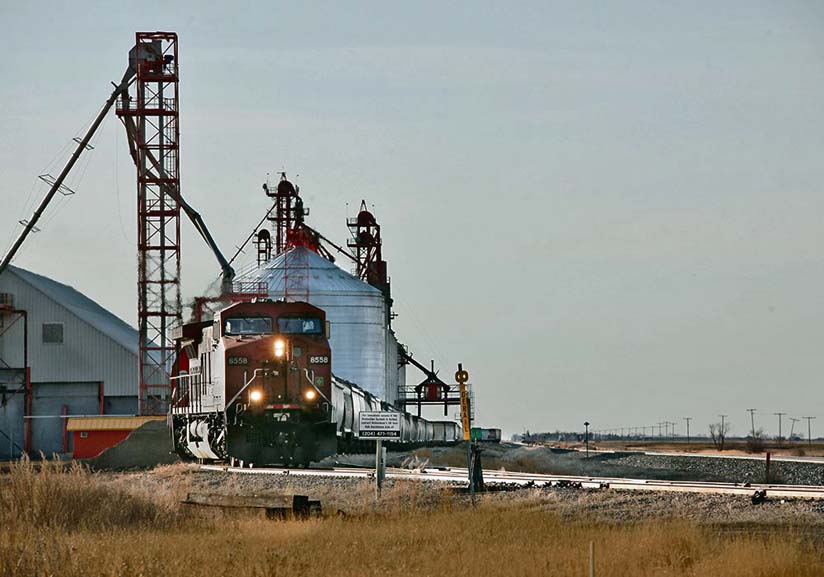

Canadian Prairies - There appears to be a disconnect between grain shippers and the Canadian
Transportation Agency (CTA) about how a key provision of Bill C-49 works.
The Western Grain Elevator Association (WGEA) recently asked the CTA to conduct an Own Motion Investigation (OMI) into
what it considers abysmal rail service for the first four months of 2022.
The CTA denied that request, prompting the WGEA to declare that the amendments to the Canada Transportation Act
contained in Bill C-49 are useless.
The CTA was asked why it refused to launch an OMI.
"It is important to note that we have not yet received any level of service complaints from WGEA's members related
to the matters in question," the CTA media team said in an email to The Western Producer.
WGEA executive director Wade Sobkowich said he received similar feedback from the regulator when he asked for an
explanation.
Three of the main tools the CTA has for resolving service issues are level of service complaints, service level
arbitration, and OMI's.
Sobkowich said nothing in the legislation says that shippers need to file individual level of service complaints before
seeking an OMI into systemic issues affecting multiple shippers.
He said there are many reasons shippers don't want to file individual complaints.
"It takes months and up to a year to get through the process, it costs the shipper hundreds of thousands of
dollars in legal fees, it rarely results in an outcome that is satisfactory to the shipper, and it results in railway
retribution against that particular shipper," said Sobkowich.
That is why grain companies were initially thrilled that Bill C-49 gave them a new option for lodging a complaint when
they felt there was a systemic issue affecting multiple shippers at once.
He said the absence of an individual level of service complaint should not be taken as an indication that everything is
hunky dory.
The CTA said it may decide to conduct an OMI if enough information suggests there may be an issue, and the minister of
transportation agrees.
"Detailed evidence is required for us to render our decision. Before initiating an OMI, we may request information
and documentation from shippers, and may seek the input of the railway(s) involved."
Sobkowich said the CTA told the WGEA that it didn't provide enough information to prompt an investigation.
"You shouldn't be expecting an association like the WGEA to make the entire case before you decide whether you're
going to do an investigation. They're wanting to take a look at conclusive evidence before they're prepared to do an
investigation to determine whether there's conclusive evidence," he said.
He wants the CTA to follow the lead of the U.S. Surface Transportation Board (STB), which recently conducted hearings
on rail service.
They called the railways before them to answer questions, collected testimony from shippers, and analyzed
data.
The hearings resulted in new requirements forcing Class I carriers to submit several reports on rail service,
performance, and employment.
 Similar new requirements are also required in Canada now.
Similar new requirements are also required in Canada now.
Some shippers are also required to submit service recovery plans, progress reports, historical data, and to
participate in bi-weekly conference calls with STB staff, according to a news release issued by the National Grain and
Feed Association.
"Our situation in Canada is no different but the CTA is asleep at the switch," said Sobkowich.
The CTA said it proactively monitors Canada's rail system and will continue to engage with the WGEA as it gathers
information.
"We may decide to initiate an OMI if we consider that tool appropriate based on circumstances," it
said.
Sean Pratt.
 Mr. Sobkowich appears to become more militant with each passing
news article.
Mr. Sobkowich appears to become more militant with each passing
news article.
(there was no image with original article)
(usually because it's been seen before)
provisions in Section 29 of the
Canadian Copyright Modernization Act.
